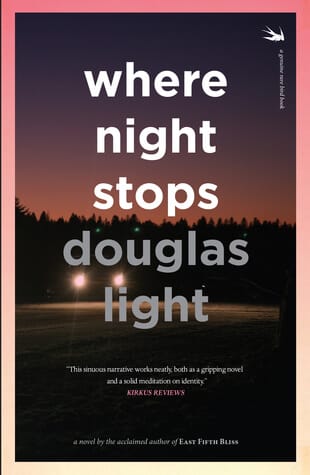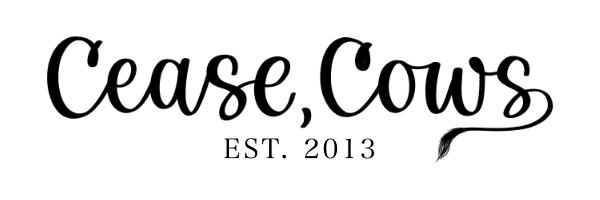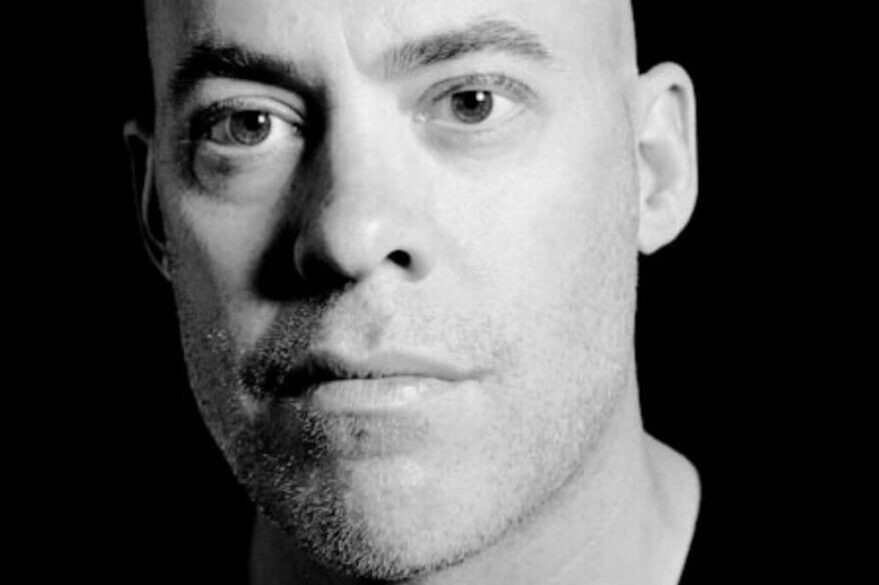
Douglas Light’s new book, Where Night Stops (Rare Bird Books), is both a crime novel and an exploration of identity, as the nameless narrator travels the globe in the service of a mysterious and shady boss. What separates Light’s novel from the standard crime saga is its existential view of how we create different versions of ourselves at different points in our lives. Readers should enjoy this smart, fast-paced novel. Purchase a copy here.
Light recently shared his thoughts with Cease, Cows.
Chuck Augello: If you came across someone holding a copy of Where Night Stops in your local bookstore, what might you say to entice this potential reader to take the book home?
Douglas Light: In that situation, desire would tell me to say, “Buy it! You’ll love it!” But I’d most likely just give them a lift-of-the-chin nod like, Cool, cool, cool. That novel makes you look smart. At best, I’d tell them to read the opening sentence. If they like it, then read the next. And so on. There’s little worse than someone reading your work out of a sense of obligation.
CA: Tell us about your initial inspiration for the novel. How did you come to write this?
DL: I had the last chapter—the last line—in my head before I set the first words to paper. I knew where I wanted to end and so worked backward from there.
CA: Correct me if I’m wrong, but I believe we never learn the name of the main character and narrator. Why did you choose to keep him nameless?
DL: True. The protagonist remains nameless. Identity plays a large role in the book, and leaving the narrator nameless bolsters that feeling of driftlessness.
CA: At one point, the narrator states, “They spoke the same language, but couldn’t understand each other.” Miscommunication, or the inability to say what one truly feels, seems to haunt the characters in this novel. Was this a deliberate theme?
DL: It was. Most relationships are launched from an erroneous belief or misunderstanding. That fact eventually comes to light, and once it does, we either choose to confront it or ignore it, to either accept that we were wrong or to keep blundering on.
CA: Where Night Stops is fast-paced, and while it’s not a detective novel, it’s reminiscent of writers like Raymond Chandler and Ross McDonald, with some of Jean-Luc Godard’s film Breathless mixed in. What were some of your influences in writing this novel?
DL: I like that Godard reference. The original cover art of Where Night Stops made me think of his film Weekend for some reason. As for influences, Joan Didion’s fiction, for sure; the constant, low-level terror that permeates her novels is amazing.
CA: Your main character travels from the Midwest, to a homeless shelter, to New York, Florida, and several hot spots around the world. Just curious—did you do a lot of research or traveling during the writing of the book?
DL: I grew up in Indiana, so I know that part of America. The Seattle homeless shelter section is based off personal experience, my being homeless in 1991-1992. As for the places I haven’t been, I researched, though I didn’t set out to make the novel a travelogue with detailed descriptions.
CA: A tragic accident leaves the narrator alone and disconnected at a young age. One of his few positive connections is with Sarah, a woman he meets in New York. Tell us about the relationship.
DL: I wanted to create an opportunity for him to connect with someone, to see “the other side.” Ultimately, though, he continues on, holding tight to his loss and his aloneness.
CA: The narrator engages in a number of shady dealings, with his contact leaving him clues and instructions inside specific books. Were the book titles chosen for specific reasons? I enjoyed looking for possible connections.
DL: Yeah, the books are a fun part of the novel. Rebecca West is amazing, with Black Lamb and Grey Falcon being one of the most astute studies of the Balkans I’ve come across. The self-help books are a poke at the narrator. The books the narrator references for his jobs and travels, most are real, though I did come up with a few titles.
CA: If you were given space on the front page of the New York Times Book Review to champion a writer whose work you feel is overlooked, whom would you write about and why?
DL: Damn, that’s a great question, one I’m going to have to think on.
CA: Finally, there’s no shortage of ways to occupy one’s time. Why do you choose to write fiction?
DL: That’s a question I often ask myself, Why do I write? For me, it comes back to a desire to understand. Writing isn’t about finding answers, but clearly posing the questions. It’s about realizing that, contrary to what we feel, we are not unique. Our story has been told time and again. It’s our job to come at it from a different angle. To use the same words in a different order.
–
Chuck Augello (Contributing Editor) lives in New Jersey with his wife, dog, two cats, and several cows that refuse to cease. His work has appeared in One Story, Juked, Hobart, SmokeLong Quarterly, and other fine places. He publishes The Daily Vonnegut and contributes interviews to The Review Review. He’s currently at work on a novel.

